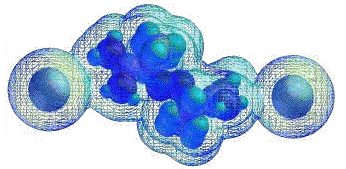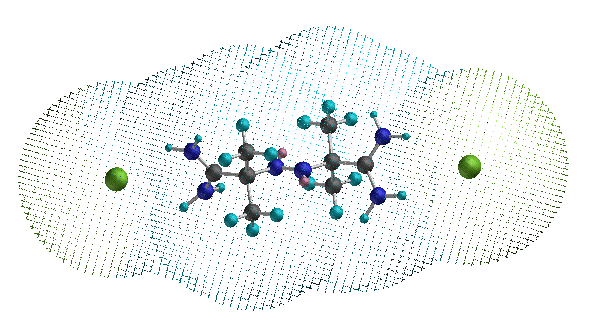
Water soluble Azo polymerization initiators
Synazo's supplies Azo initiators for many polymerisation reactions. Our most important water soluble Azo Initiators are AZPH and AZIM, and are used in many application fields of polymerization of functionalized acrylic monomers.

|
AZPH (chemical name: 2,2'-Azobis-(Amidinopropane) Dihydrochloride) and AZIM (chemical name: 2,2'-Azobis(N,N'-dimethylene isobutyramidine) Dihydrochloride) are performance chemicals for several industrial application. They are water soluble polymerization initiator (class: azo initiator) with many versatile applications in polymer chemistry. They are widely used as source of free radicals and have several major advantages over other polymerisation initiators, e.g. peroxide initiators. |
The most important characteristic of a polymerization initiator is the speed of formation of radicals. As a general measure, the terminus Half Life is used. The Half Life is defined as the time required for half of the molecules of a given quantity of initiator to decompose, and it is closely related to temperature as it follows kinetics under Arrhenius equation.



Applications in Industry
The most common industrial applications of 2,2'-Azobis(amidinopropane) Dihydrochloride are:
|
Final Application |
Chemical Reactants |
Product |
|
Adhesives |
Polyvinyl Alcohol |
Adhesives |
|
Consumer products/ Personal Care |
Polyacrylic Acid and Copolymers |
SAP (Superabsorbant Polymers) for Diapers, |
|
Consumer products/ Personal Care |
Polyvinyl Methyl Ether/ |
Hair Fixatives |
|
Detergents |
Polyacrylic Acid and Copolymers |
Cobuilding agents (for Zeolithes) |
|
Pharmaceuticals |
Polyvinylpyrrolidone |
Binders/Thickeners |
|
Pharmaceuticals |
Carboxypolymethylene |
Controlled Release Tablets, |
|
Pulp and Paper |
Polyacrylamides, |
Filler Retention Aids, Flocculants, |
|
Textile |
Polyacrylic acid and derivatives |
Rheology modifyers, |
|
Textile |
Fluorinated monomers |
Repellents |
|
Textile |
Polyvinyl Alcohol |
Warp Sizes |
|
Water Treatment |
Polyacrylamides, |
Flocculants, |
Advantages of 2,2'-Azobis(amidinopropane) Dihydrochloride
Among the major advanctages of Azo Initiator 2,2'-Azobis(amidinopropane) Dihydrochloride compared to other technologies are:
A possible disadvantage during use is based on the HCl salt form, namely the irritant (Xi) property of 2,2'-Azobis(amidinopropane) Dihydrochloride. In combination with the crystalline standard form of the product which may cause formation of dust, workforce protective measures have to be taken into account by the user.
Chemiehandel Dr. Wolfgang Doerner has developed advanced forms of supply to overcome negative effects of dustiness of material at the point of use, and already is supplying this as well as other water soluble Azo Initiators in different supply systems:
